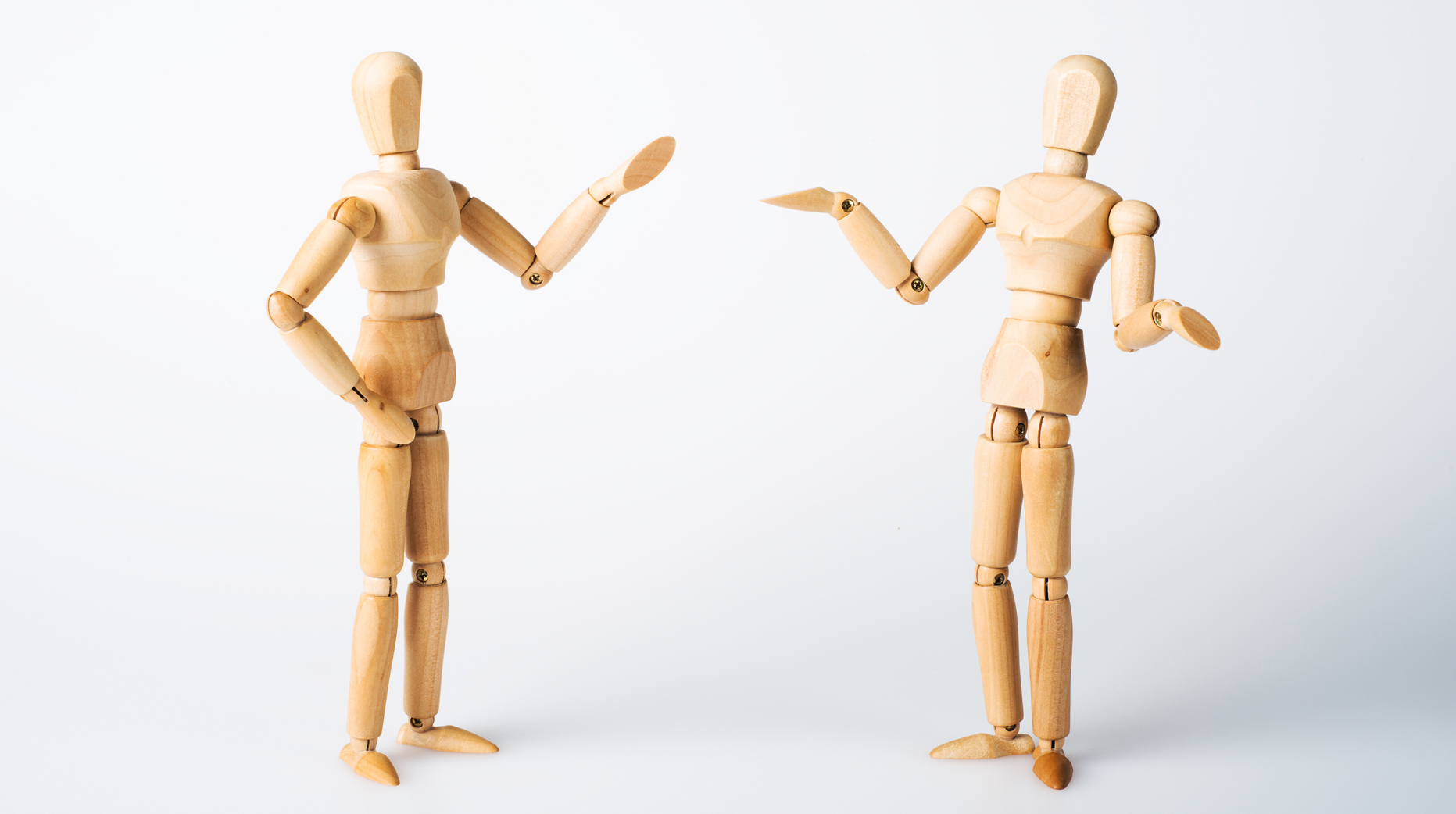Step In Front Of The Camera To Improve Communication
A quick look at today’s politicians may make you wary about recording yourself when you practise speeches or other dialogue. People who seem to love the attention of the camera aren’t always the most believable, honest or sincere. Even though it may seem like a narcissistic trait to want to video yourself, it will help you see what you are doing right--and wrong!
Because of technology, we are constantly bombarded with communication from people all around the world. This isn’t always a bad thing. Digital technology is shrinking the world, so we can speak to people wherever (even on the space station!) anytime. Collaborating on a global level means we have access to more brains, more life experiences and unique ways of thinking and solving problems.
Recording Yourself Is Hard, For Most Of Us
Even highly-paid actors have a difficult time watching themselves perform. Many people tend to slide out of camera view if home videos are being shot, and sometimes someone may flat out refuse to be recorded or photographed.
Why do we not like to see ourselves?
Many psychologists believe confirmation bias and the familiarity principle affects why we often don’t want to get videotaped while practising.
Confirmation Bias
We all have certain notions of what we look like, how we sound and how we behave in various situations. Our brains tend to seek evidence to support our preconceived notions about ourselves.
Confirmation bias occurs when we interpret or seek out evidence that supports our existing beliefs or idea. Psychologists generally describe confirmation bias as a “one-sided case-building process.”1
When we are looking at a video of ourselves, most of us don’t reinforce any glamour or beauty. Instead, we tend to focus on the negative, and our brain essentially backs this thought or supports us because of confirmation bias. You might hate your hair, or how you say certain words or a million other things. Unless you’re exploding with self-esteem (or a narcissist), there are probably negative aspects of how you look, speak or move that seem glaringly obvious on video.
Familiarity Principle
We tend to like things we have experience with. Taking the same route to work, wearing the same types of clothing or shoes, reading the same websites--all of these behaviours are soothing and familiar.
However, it’s not always good for our brain to keep things the same. While some habits are good (meditating, yoga, eating healthy, sleeping enough), other habits cause our brains to stagnate.
When we watch a recording of ourselves, it’s almost as if our brain has a difficult time recognising us. This is because we normally see ourselves using a mirror. In a video, nothing is swapped, so you see your body and features as they truly are, which may not quite mesh with the idea you have of yourself in your mind.
Related to this principle, the “Mirror Mirror on the Wall” bias means some people believe they are more attractive or handsome or beautiful than they actually are--and a video is a somewhat rude awakening (especially since we tend to zoom in on imperfections).2
All of us show bias when it comes to what information we take in. We typically focus on anything that agrees with the outcome we want.
Noreena Hertz
What Can Videoing Yourself Do For Your Communication Skills?
As a leader, you probably speak to others often. Your habits (how you step around the room or move your hands) are likely ingrained and part of how you communicate. Real communication is more than the words we say, however. Body language and unconscious reactions to people around us can speak volumes. When you watch yourself, you can see exactly how you move and respond to things that happen.
So, why would you want to video yourself, again? If you’re shaking your head at the idea, think of the potential benefits, including:
- Practise: Recording yourself allows you to practise what you want to say. If you’re especially nervous about a big talk or speech, line up your pets, your plants or even your pillows and set up your cell phone to record. When you can fully explain a concept to others, you understand it, so giving yourself some practise time can help your brain learn the material.
- Learning to be present: When you attend a meeting, is your mind wandering ahead to the rest of the day? Recording yourself can help you learn to be present and stay in the moment. If you notice yourself trailing away or becoming distracted, consider using cue cards or notes to get back on track.
- To see yourself as others see you: Do you think you’re very expressive, with lots of vocal tones and facial expressions? Record yourself and find out. If you speak about future goals in a monotone, expressionless voice, people will be less than enthusiastic about collaborating with you, and they likely won’t share any passion for your vision. While it’s important to know your audience, many of us could stand to be a bit more expressive when we speak to others.
Increasing Collaboration To Improve Leadership
As leaders are increasingly expected to manage virtual teams, shifting functional lines and evolving supply chains, we must be able to collaborate in the moment. When we record ourselves, we get a glimpse of what others see. The i4 Neuroleader Model can also provide a complete 360 feedback from people pertaining to all aspects of your life, revealing more than what you can visualise.3
It’s only human for us to exhibit traits such as confirmation bias. And no, it doesn’t automatically make you a narcissist to want to record yourself speaking. By being aware of our potential strengths and weaknesses, we can grow to become better leaders, which the world desperately needs right now.
Citations:
1. Nickerson RS. Confirmation Bias: A Ubiquitous Phenomenon in Many Guises. Review of General Psychology. 1998; 2(2), 175-220.
2. Epley N, Whitchurch E. Mirror, Mirror on the Wall: Enhancement in Self-Recognition. PSPB. 2008; 34(9), 1159-1170.
3. McLennan K. Building Leaders for the Imagination Age: The Case for the i4 Model. About my Brain Institute. 2016;1. [White Paper].
- i4 Neuroleader (353)
- Leadership & Culture (336)
- Brain Health & Wellbeing (206)
- Innovation (97)
- Performance (85)
- Our News (79)
- Collaboration (68)
- Agility (53)
- Practitioner Stories (44)
- In The Press (36)
- Make Me A Leader (33)
- Balance (31)
- Integration (30)
- Imagination (29)
- Awareness (23)
- Brain-Friendly Channel (22)
- Brain-Friendly Leadership (22)
- Communication (22)
- Curiosity (21)
- Inspiration (19)
- Intuition (19)
- Attitude (17)
- Courage (16)
- Adaptability (14)
- Case Studies (14)
- Drive (14)
- Generosity (13)
- Ethics (9)
- Mental Readiness (9)
- Influence (8)
- Retreat (8)
- Brain-Friendly Leadership (1)
- Oracle Cards (1)
- 1 November 2025 (2)
- 1 September 2025 (3)
- 1 August 2025 (5)
- 1 July 2025 (5)
- 1 June 2025 (2)
- 1 April 2025 (1)
- 1 March 2025 (8)
- 1 February 2025 (3)
- 1 September 2024 (4)
- 1 July 2024 (2)
- 1 June 2024 (6)
- 1 May 2024 (2)
- 1 April 2024 (3)
- 1 March 2024 (1)
- 1 November 2023 (1)
- 1 August 2023 (1)
- 1 July 2023 (2)
- 1 June 2023 (2)
- 1 May 2023 (4)
- 1 April 2023 (2)
- 1 March 2023 (7)
- 1 February 2023 (4)
- 1 January 2023 (1)
- 1 September 2022 (1)
- 1 May 2022 (3)
- 1 April 2022 (1)
- 1 March 2022 (5)
- 1 February 2022 (4)
- 1 January 2022 (4)
- 1 December 2021 (2)
- 1 November 2021 (4)
- 1 October 2021 (3)
- 1 September 2021 (6)
- 1 August 2021 (1)
- 1 April 2021 (1)
- 1 December 2020 (2)
- 1 November 2020 (1)
- 1 September 2020 (1)
- 1 August 2020 (1)
- 1 July 2020 (3)
- 1 June 2020 (4)
- 1 May 2020 (3)
- 1 April 2020 (4)
- 1 March 2020 (6)
- 1 February 2020 (4)
- 1 January 2020 (2)
- 1 December 2019 (3)
- 1 November 2019 (3)
- 1 October 2019 (5)
- 1 September 2019 (4)
- 1 August 2019 (4)
- 1 July 2019 (4)
- 1 June 2019 (5)
- 1 May 2019 (9)
- 1 April 2019 (9)
- 1 March 2019 (8)
- 1 February 2019 (7)
- 1 January 2019 (8)
- 1 December 2018 (5)
- 1 November 2018 (10)
- 1 October 2018 (16)
- 1 September 2018 (9)
- 1 August 2018 (10)
- 1 July 2018 (9)
- 1 June 2018 (8)
- 1 May 2018 (9)
- 1 April 2018 (9)
- 1 March 2018 (9)
- 1 February 2018 (8)
- 1 January 2018 (8)
- 1 December 2017 (6)
- 1 November 2017 (9)
- 1 October 2017 (9)
- 1 September 2017 (8)
- 1 August 2017 (10)
- 1 July 2017 (8)
- 1 June 2017 (8)
- 1 May 2017 (9)
- 1 April 2017 (8)
- 1 March 2017 (6)
- 1 January 2017 (3)
- 1 December 2016 (4)
- 1 November 2016 (5)
- 1 October 2016 (4)
- 1 September 2016 (2)
- 1 August 2016 (4)
- 1 July 2016 (4)
- 1 June 2016 (2)
- 1 May 2016 (3)
- 1 April 2016 (3)
- 1 March 2016 (7)
- 1 February 2016 (2)
- 1 January 2016 (5)
- 1 December 2015 (2)
- 1 November 2015 (2)
- 1 October 2015 (4)
- 1 September 2015 (2)
- 1 August 2015 (2)
- 1 July 2015 (1)
- 1 June 2015 (3)
- 1 May 2015 (4)
- 1 April 2015 (5)
- 1 March 2015 (3)
- 1 February 2015 (3)
- 1 January 2015 (3)
- 1 December 2014 (3)
- 1 November 2014 (3)
- 1 October 2014 (3)
- 1 September 2014 (5)
- 1 August 2014 (4)
- 1 July 2014 (5)
- 1 June 2014 (3)
- 1 May 2014 (1)
- 1 March 2014 (1)
- 1 December 2013 (2)
- 1 November 2013 (1)
- 1 July 2013 (1)
- 1 June 2013 (1)
- 1 May 2013 (3)
- 1 April 2013 (1)
- 1 March 2013 (2)
- 1 February 2013 (1)
- 1 January 2013 (2)
- 1 November 2012 (1)
- 1 October 2012 (1)
- 1 September 2012 (1)
- 1 August 2012 (2)
- 1 July 2012 (1)
- 1 June 2012 (1)
- 1 May 2012 (2)
- 1 April 2012 (1)
- 1 February 2012 (1)
- 1 January 2012 (1)
- 1 November 2011 (1)
- 1 October 2011 (3)
- 1 September 2011 (2)
- 1 July 2011 (1)
- 1 June 2011 (1)
- 1 May 2011 (1)
- 1 April 2011 (1)
- 1 March 2011 (1)
- 1 February 2011 (2)
- 1 January 2011 (4)
- 1 December 2010 (4)
- 1 November 2010 (3)
- 1 October 2010 (5)
- 1 September 2010 (4)
- 1 August 2010 (4)
- 1 July 2010 (3)
- 1 June 2010 (4)
- 1 May 2010 (7)
- 1 April 2010 (5)
Subscribe by email
You May Also Like
These Related Stories

Practise Might Not Make You Perfect But It Will Make You Better

The Unspoken Words That You May Be Missing



No Comments Yet
Let us know what you think